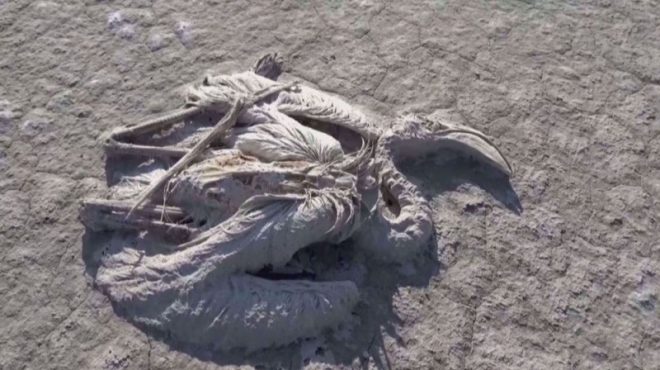Thousands of flamingos are found dead on the dry bed of Turkey’s Lake Tuz, alarming environmentalists and prompting authorities to investigate what caused the mass deaths.
Drone footage from the area filmed on Wednesday showed hundreds of flaminglets partly buried in dried parts of Lake Tuz, in Turkey’s central province of Konya.
The initial analysis showed the flamingos were not poisoned, Turkish Minister of Agriculture and Forestry Bekir Pakdemirli told reporters, adding that some 1,000 flaminglets were among the birds that died.
Environmentalists said the deaths stemmed from the agricultural irrigation practices in the region, along with the repercussions of climate change and drought.
According to a report published by Turkish environmental foundation TEMA in 2020, the annual water reserve in central province of Konya’s close basin was 4.5 billion cubic metres, while the consumption reached 6.5 billion cubic metres. Environmentalist and wildlife photographer Fahri Tunc said the canal that was built to deliver water to Lake Tuz is redirected for agricultural irrigation.
“This is the irrigation canal that comes from Konya. It needs to deliver water to Lake Tuz. As you can see, the water is not coming through. It stopped,” Tunc said.
According to statistics, some 5,000 – 10,000 flaminglets are born in Lake Tuz every year during the hatching season. Tunc said, this year, only 5,000 eggs have hatched and most of the birds died while seeking water on the surface of partially dried lake.
President of Doga (Nature) Association Dicle Tuba Kilic said the only way to prevent mass flamingo deaths is to change the agricultural irrigation methods in region.
Pakdemirli said the deaths are not related to the irrigation practices in the region.
 Alghadeer TV Alghadeer TV
Alghadeer TV Alghadeer TV

